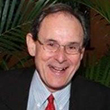
Course Description
Exercise is promoted as a fundamental component of a healthy lifestyle. Ever wonder why? Exercise is more than just an “art of converting big meals and fattening snacks into back strains and pulled muscles by lifting heavy things that don’t need to be moved, or running when no one is chasing you.” (Anonymous quote) Our bodies evolved to move over several millennia.
Did you know that physically active obese individuals live longer than inactive thin individuals? Are you interested in seeing the evidence on the benefits and risks of stretching? What is the best way to treat your ankle, knee, and/or shoulder injury? How does injury affect mood and what are the consequences?
Whether you are a competitive athlete, an aspiring musician or dancer, whether you play for fun or just want to lead an active lifestyle, this course will entertain and challenge you. Topics will include basic and advanced principles of body movement and biological, psychological and social issues related to activity/sport/injury/rehabilitation. The course will include content from leading international experts in multiple fields related to the science of exercise.
During this course, students will:
- Examine the benefits of physical activity
- Discuss the benefits of physical activity
- Identify challenges in promoting physical activity
- Describe general principles on how to train
- Discuss how to prevent injury
- Explain when and why stretching is effective and when it is not
- Describe errors in training that lead to injury
- Discuss the similarity between athletes, musicians, dancers and circus artists
- Identify what to do if injury occurs
- Describe what you can do on your own when injured
- the importance of rehabilitation and all its components
- Identify the underlying principles for deciding when it is appropriate to return to activity after an injury
Instructor
click images to view full bios
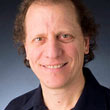 |
Ian ShrierMD, PhDAssociate Professor Centre for Clinical Epidemiology, Lady Davis Institute, Jewish General Hospital McGill University |
Guest Speakers
click images to view full bios
| Unit 1: Why is it important to be physically activity? | |
| 10-Feb | TOPIC 1 INTRODUCTION TO THE BODY MATTERS |
| Lesson 1: Overview | |
| Lesson 2: The Biggest Public Health Problem of the 21st Century with Steven Blair | |
| Lesson 3: Introduction to Physical Activity Promotion with Robert Sallis | |
| Entrance Survey | |
| Course Project: Intro and Overview | |
| 17-Feb | TOPIC 2 IMPORTANCE OF PHYSICAL ACTIVITY |
| Lesson 1: It's never too late - the importance of activity in the elderly | |
| Lesson 2: Physical literacy with Patrice Aubertin | |
| MOOC Motions - Body101x Challenge | |
| Course Project: Phase 1 | |
| 24-Feb | TOPIC 3 PRINCIPLES OF TRAINING |
| Lesson 1: How should I train for physical fitness? | |
| Lesson 2: Exercise and pregnancy | |
| Lesson 3: How much exercise is too much? with Margo Mountjoy | |
| MOOC Motions - Body101x Challenge | |
| Course Project: Phase 1 | |
| Quiz: Unit 1 due 24-March 23:30 UTC | |
| Unit 2: What can I do to avoid getting injured? | |
| 2-Mar | TOPIC 4 EVALUATING THE EVIDENCE |
| Lesson 1: Evaluating the evidence: it's not rocket science | |
| Lesson 2: Does stretching prevent injuries? | |
| Lesson 3: Sport, doping and the physician with Andrew Pipe | |
| MOOC Motions - Body101x Challenge | |
| Course Project: Peer Assessment closes March 22 @ 23h30 UTC | |
| 9-Mar | TOPIC 5 HOW DID I HURT MYSELF |
| Lesson 1: Knee injuries in running and cycling with Gloria Cohen | |
| Lesson 2: Shoulder injuries | |
| Lesson 3: Back injuries | |
| MOOC Motions - Body101x Challenge | |
| Course Project: Phase 2 | |
| 16-Mar | BREAK WEEK |
| Live Session | |
| Course Project: Phase 2 Implementation | |
| 23-Mar | TOPIC 6 SPECIAL TOPICS DANCE, MUSIC AND CIRCUS ARTS |
| Lesson 1: Injuries and the arts - when the show must go on with Michael Montanaro | |
| Lesson 2: When the music stops with Isabelle Duschene | |
| Lesson 3: Sports versus circus with Bernard Petiot | |
| MOOC Motions - Body101x Challenge | |
| Course Project: Phase 2 | |
| Quiz: Unit 2 due 14-April 23:30 UTC | |
| Unit 3: What can I do if I get injured? | |
| 30-mar | TOPIC 7 WHEN DO I HAVE TO SEEK HELP? |
| Lesson 1: When do I need a test? | |
| Lesson 2: Why is injury rehabilitation important? | |
| Lesson 3: Special considerations in shoulder rehabilitation with Kerry Gordon | |
| MOOC Motions - Body101x Challenge | |
| Course Project: Phase 2 | |
| 6-Apr | TOPIC 8 RETURNING TO ACTIVITY |
| Lesson 1: When can I safely return to activity? | |
| Lesson 2: Running and osteoarthritis | |
| Lesson 3: Sports concussion with Paul McCrory | |
| MOOC Motions - Body101x Challenge | |
| Course Project: Final Report due 29-April 23:30 UTC | |
| 13-Apr | TOPIC 9 WRAP UP |
| Lesson 1: Summary | |
| MOOC Motions - Body101x Challenge | |
| Quiz: Unit 3 due 5-May 23:30 UTC | |
| Exit Survey | |
Participation in Activities (20%)
This course includes a series of small activities embedded within the lessons. Completion of these components of the courseware is worth 20% of your final grade. You can receive full marks by trying all the activities and submitting the correct response. They are designed such that you have unlimited attempts to submit the correct answer. There is no deadline, but they must be submitted before the course closes on April 27, 2016, for them to be included in the calculation of your final grade.
Unit Quizzes & Course Project (80%)
During the course you can expect to complete three (3) quizzes and a course project. The quizzes will correspond to the units and are an opportunity to test your knowledge of the concepts covered in the course materials. The course project focuses on physical activity promotion programs. Further details about the requirements for the course project will be released with topic 1 of the courseware. These four components combined are worth 80% (20% each) but when calculating your final grade, your lowest score will be dropped.
Verified Attestation
To obtain a verified attestation of achievement (equivalent of an edX Verified Certificate of Achievement), you must register for the verified track by March 2, 2016 and a final grade of 60% or higher needs to be achieved. EdX will issue the attestation to you via your student dashboard under the name of McGillX after the end of the course. The attestation will not include a final grade.
Bios
Ian Shrier

Ian has been a practicing sport medicine physician for over 20 years with doctoral training in physiology and post-doctoral training in epidemiology. He is a past President of the Canadian Academy of Sport and Exercise Medicine and a past chair of their Credentials Committee that sets the national examination for sport and exercise medicine physicians in Canada. He is also a past Board of Trustees member of the American College of Sports Medicine, and is a current member of their Evidence Based Practice committee, Research Review committee, and Epidemiology/Biostatistics interest group. Ian has published over 180 peer-reviewed articles and twelve book chapters on topics related to physical activity, injuries, and research methods. With respect to clinical sport and exercise medicine research, he is particularly recognized for his work on stretching, compartment syndrome, information synthesis, return to play decision-making and circus injuries. He is currently the co-Editor-in-Chief of the journal Research Synthesis Methods, an editorial board member of four international sport medicine journals, and a member of the Cochrane Collaboration Statistical and Bias Methods Groups. |
Patrice Aubertin
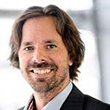 Director of Research and Teacher Training Programs Director of Research and Teacher Training ProgramsNational Circus School (NCS), Montreal Mr. Patrice Aubertin is the Director of Research and Teacher Training Programs at the National circus school (NSC) in Montréal, Canada, and the Social Sciences and Humanities Research Council of Canada Industrial Research Chair for Colleges in circus arts. Since 2011, year of establishment of the Chair, Mr. Aubertin has developed over twenty industrial, institutional and associative partnerships and is collaborating to the Art for social change partnership project. His areas of innovation and applied research lie in the fields of social and physical impacts of circus arts practice in youth, of circus arts pedagogy and in the fields of creative-research, dramaturgy and creativity. Active treasurer at the Colleges’ Research Association of Quebec, Mr. Aubertin strongly advocates the value of applied research fostered through collaborations and partnerships. Prior to joining the NCS in 2008, Mr. Aubertin worked 10 years at Cirque du Soleil, namely as acrobatic coach, artists’ training senior coordinator and Director of Research and Development- New creation projects. |
Steven Blair
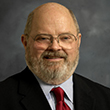 PED PEDProfessor Arnold School of Public Health, University of South Carolina Steven N. Blair is a Professor at the Arnold School of Public Health at the University of South Carolina. Dr. Blair is a Fellow in the American College of Epidemiology, Society for Behavioral Medicine, American College of Sports Medicine, American Heart Association, and National Academy of Kinesiology; and was elected to membership in the American Epidemiological Society. Dr. Blair is the recipient of three honorary doctoral degrees
He has received awards from many professional associations, including the Honor Award from the American College of Sports Medicine, the Population Science Research Award from the American Heart Association, and the Stunkard Lifetime Achievement Award from The Obesity society. He also was granted a MERIT Award from the National Institutes of Health, and is one of the few individuals outside the United States Public Health Service to be awarded the Surgeon General's Medallion. He has published over 650 papers and chapters in the scientific literature, and is one of the most highly cited exercise scientists, with over 42,000 citations to his work and a current annual citation rate of >4,000. His h-Index is 97. Websites: |
Gloria Cohen
 MD MDLecturer Columbia University Gloria is a primary care sports medicine physician at Orthopaedic & Neurosurgery Specialists in Greenwich, Ct, and for the Columbia University varsity athletic teams and lecturer in the Department of Orthopaedics at Columbia University. She graduated from the University of Ottawa School of Medicine, and served as the team physician for the Canadian National Olympic Cycling Team for 14 years. She was the team physician for the Vancouver Canadians Triple A baseball team (Chicago White Sox and California Angels). She was a member of the Canadian Medical Team for the Olympic Games in Seoul, Atlanta, and Sydney; and a member of the host medical team for the Olympics in Vancouver. Gloria is also a successful competitive runner who has qualified twice for the New York Marathon, and is both an off-road and road cyclist. Websites: |
Isabelle Duchesne
 Physiotherapist PhysiotherapistMontreal Isabelle Duchesne is physiotherapist at Kinatex in Montreal, with a fellowship in manual and manipulative physiotherapy (FCAMT). Her passion for musicians led her to study at the «Clinique du musicien de Paris», and obtain a degree in « Medicine of the Arts » and is an accredited teacher of the «Plaisir de Jouer ©» program developed by Marc Papillon. Isabelle has worked with professional musicians and university students for over 15 years. She lectures at the McGill Schulich School of Music, and offers workshops for professional musicians with the Conseil Québécois de la Musique (CQM) on the «Prevention of musculosqueletal injuries for musicians.» Websites: |
Kerry Gordon
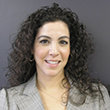 BS, MS BS, MSSenior Head Therapist, Performance Medicine for Resident Shows Cirque du Soleil Kerry Gordon is currently the Senior Head Therapist of Performance Medicine for the Resident Shows Division for Cirque du Soleil. She received her B.S. in Sports Injury Management from University of Nevada, Las Vegas in 1999 and her M.S. in Physical Education with a Concentration in Athletic Training in 2006. Throughout her 14-year career she has worked as an athletic trainer in various settings including the National Football League, Arena Football League, Extreme Football League, Southeastern Conference, and National Association of Intercollegiate Athletics. Since joining Cirque du Soleil in 2008, Kerry has worked in several capacities as the Assistant Director, Supervisor of Performance Medicine, and Performance Medicine Therapist and currently oversees a staff of 21 therapists who are responsible for the care, prevention, rehabilitation, and health care administration for performers at Cirque du Soleil. Kerry has guest lectured at multiple Universities, National and International Conferences, on a variety of topics including spine stabilization on unstable surfaces, rehabilitation post platelet-rich plasma therapy, and working in the performing arts. She has also been a guest for segments on CNN and “The Doctors”. Her passion is working with elite level athletes that are motivated to push the limits on human performance. Websites: |
Abe Kestenberg
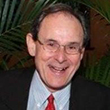 Associate Professor, Schulich School of Music Associate Professor, Schulich School of Music McGill University Abe is an associate professor at McGill's Schulich School of Music. He studied saxophone, clarinet and flute and has toured the world with orchestras, chamber groups, theatre shows and artists. As well, he has performed on many television and radio shows, jingles, recordings and film music. He continues to teach at McGill and his current interests include chamber music, music professional development and video production. Part of Abe’s teaching involves developing proper technique in young musicians to avoid serious injury. He regularly invites a physiotherapist specializing in music playing related injuries to his class. |
Paul McCrory
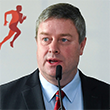 MBBS, PhD, FRACP, FACSP, FACSM, FFSEM, FASMF, FRSM, GradDipEpidStats MBBS, PhD, FRACP, FACSP, FACSM, FFSEM, FASMF, FRSM, GradDipEpidStatsNeurologist/Sports & Exercise Physician Florey Institutes of Neuroscience and Mental Health Centre for Health, Exercise & Sports Medicine, University of Melbourne Paul McCrory is a consultant neurologist, internist and a sports & exercise physician. He is both an academic researcher and clinician based at the Florey Institutes of Neuroscience and Mental Health in Melbourne, Australia as well as at the Centre for Health, Exercise & Sports Medicine at the University of Melbourne. He is the former editor-in-chief of the British Journal of Sports Medicine (BMJ Publications) as well as a former associate editor of Clinical Journal of Sports Medicine and serves on 5 other editorial boards. He is past-president of the Australasian College of Sports Physicians and is a Board member for the Institute of Sports and Exercise Medicine in the UK and is a Member of the Concussion/Mild TBI Subgroup for the US National Institutes of Health, National Institute of Neurological Disorders and Stroke. He is Chair of the International Concussion in Sport Consensus Group. He worked as team physician for 15 years with the Collingwood Football Club in the national Australian football competition as well as working at the Sydney Olympic Games and with a variety of other sports and individual athletes. He advises a number of sports internationally with regard to brain injury policy advice. Paul is a world expert in sport-related neurological injury. He has an extensive research record in the field of brain injury and sports neurology with over 450 publications and 5 textbooks as well as an ongoing professional interest in eHealth where he is currently involved in the design and production of medical software for medical and allied health practice. He has also published extensively in the area of social media. In addition to numerous research awards, he received the 2010 Duke of Edinburgh Prize (presented by the Institute of Sports and Exercise Medicine, Faculty of Sport & Exercise Medicine, Royal College of Surgeons (Edinburgh)) which is awarded for an outstanding contribution to clinical and/or research work in the field of sports medicine. It has been awarded twice since its inception in 1990. |
Michael Montanaro
 Chair of the Department of Contemporary Dance, Concordia University, Chair of the Department of Contemporary Dance, Concordia University,Co-Director of the Topological Media Lab, Founding Member of Hexagram - Institute for Research/Creation in Media Arts Michael Montanaro is a trans-disciplinary artist who is best known for his work in the field of contemporary dance and mixed media. A graduate of the Hartford Conservatory, he has performed with the Boston Ballet, Les Grands Ballet Canadiens and Le Groupe de la Place Royale where he also served for 5 years as co-artistic director. In 1985 he founded Montanaro Dance, developing a reputation for using cutting edge technology to create theatrical environments for his choreography. Over its ten-year history Montanaro Dance toured both nationally and internationally. Since 1996 Michael has worked as a choreographer, director and collaborator on numerous projects including the Cirque du Soleil’s “Varekai”, Opéra de Montréal`s multi-media version of “Carmina Burana”, the documentary “Montanaro In Time”, a full length theatrical work “Frankenstein’s Ghosts, and a series of short films entitled “Dances For Small Spaces”. He has also been deeply involved in the envisioning, design and creation of numerous research projects dedicated to evolving innovative ways in which new technologies are used to enhance the performative experience within responsive environments. Michael has been chair of the Department of Contemporary Dance, Concordia University, for the past 15 years, is Co-Director of the Topological Media Lab and a founding member of Hexagram - Institute for Research/Creation in Media Arts. As Co-Director of the Topological Media Lab he is involved in working with many of the graduate students in the conception, development, creative direction and realization of many of the labs diverse research streams. Michael is currently overseeing the direction of “Einstein’s Dream”- a large scale interactive installation; “WunderKammer” - a miniature interactive theatre that combines the mechanical tropes of Victorian science, (such as Pepper’s Ghost) with 21c live computational video and sound processing; and “Practices of Everyday Life – Cooking” an electroacoustic composition / performance piece based on the sonified preparation of a meal by a professional chef/dancer. In 2012-2013, Michael was invited by the Centre for Music Studies at Cambridge University as guest lecturer and spent two separate periods of time at the University of Chicago as a visiting artist. Besides his work with the Topological Media Lab, Montanaro is in the final stages of producing a full-length film version of Frankenstein’s Ghosts, which should be released to the public in June 2015. He is also involved in producing the innovative lecture series entitled “Physical Lectures.” Plans for 2016 include first stage creative work on “Krakatoa” - a new contemporary opera by Tim Brady. Websites: |
Margo Mountjoy
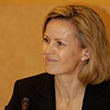 MD, CCFP, FCFP, FACSM, Dip Sport Med. MD, CCFP, FCFP, FACSM, Dip Sport Med.Clinical Professor Michael G. DeGroote School of Medicine, McMaster University Margo received her medical education and her family medicine training at McMaster University. She obtained her sports medicine specialty degree in Ottawa, Canada in 1990. Margo has worked as a community sports medicine physician in the Health & Performance Centre at the University of Guelph since 1988 where she has focussed her practice on promoting elite athlete care and physical activity promotion in the general population. In addition, Margo has acted as the national team physician for Synchro Canada for 20 years as well as for the National Endurance Training Centre Athletes (middle and long distance track athletes) and the National Triathlon & Wrestling team training centres. Margo is a Clinical Professor in the Faculty of Family Medicine in the Michael G. DeGroote School of Medicine, McMaster University where she teaches sport medicine and is the Director of Student & Resident Affairs. Margo is a member of the Fédération Internationale de Natation (FINA: International Aquatics Federation) Executive Board and holds the portfolio of Sports Medicine. She is also a member of the Association for Summer Olympic International Federations Medical Consultative Group and the International Olympic Committee (IOC) Medical Commission Games Group. Margo sits on the Therapeutic Use Exemption (TUE) committees of the IOC, World Anti-Doping Agency and the Canadian Centre for Ethics in Sport as well as the United States Anti-Doping Agency and International Rugby Board Anti-doping Review Boards. Margo’s areas of research focus on elite athlete health and safety. Projects for the IOC include:
|
Bernard Petiot
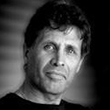 Vice President of Casting and Performance Vice President of Casting and PerformanceCirque du Soleil Bernard holds a bachelor in Physical Education and has a Masters in Science and Physical Activity from the Université Laval. He also taught Physical Education at the Université de Montréal from 1980-1997. As one of the main organizers of the first international conferences for the development of talent in gymnastics (World Gymnastics Championships held in Montréal in 1985), he was often asked to analyze international competitions such as the Sabaë World Championships and the following Olympic Games: Barcelona in 1992, Atlanta in 1996, Sydney in 2000, Athens in 2004, Beijing in 2008 and London in 2012. Renowned coach at Gymnix de Montréal from 1980-1998, Bernard has contributed to the development of some of Canada’s best gymnasts, including Cathy Giancaspro (Seoul 1988), Mylène Fleury (Barcelona 1992) and Marilou Cousineau (five time World Championships winner). He has also coached the Canadian Olympic Team, through 13 World Championships and 2 Olympic Games. Bernard Petiot has been part of the Cirque du Soleil management team for 15 years and currently holds the title of Vice President of Casting and Performance. His Vice Presidency consists of the following departments: Acrobatic Performance and Equipment Design and Development/Performance Medicine/ Artist Training/Coaching/Casting. |
Andrew Pipe
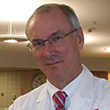 CM, MD, LLD (HON), DSC (HON) CM, MD, LLD (HON), DSC (HON)Chief, Division of Prevention and Rehabilitation, Ottawa Heart Institute University of Ottawa Dr. Andrew Pipe graduated from Queen's University in 1974. Currently Chief of the Division of Prevention and Rehabilitation at the University of Ottawa Heart Institute, Dr. Pipe is a Professor in the Faculty of Medicine at the University of Ottawa. He is currently involved in clinical research assessing new approaches to smoking cessation, strategies designed to facilitate exercise adoption, and novel initiatives to prevent cardiovascular disease. Dr. Pipe has addressed audiences in over 30 nations and is frequently consulted on issues related to tobacco use and smoking cessation, drug use in sport, and physical activity and health. In addition to his clinical responsibilities, Dr. Pipe has been extensively involved in sports and sport medicine for many years. He is currently President of the Commonwealth Games Association of Canada. Dr. Pipe served as a physician at 10 Olympic Games and has been the Team Physician for Canada's National Men's Basketball Team since 1978. A member of the Canadian Olympic Hall of Fame, he served as Chair of the Canadian Centre for Ethics in Sport from its inception until 2003. Dr. Pipe is the recipient of the International Olympic Committee's Award for "Sport, Health and Wellbeing" and honorary degrees from Queen's University (LLD), Brock University (DSc) and University of Guelph (DSc). He was formerly Vice Chairman of the Board of Trustees at Queen’s University. In 2002 he was named to the Order of Canada. |
Robert Sallis
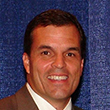 MD MDFamily Physician Kaiser Permanente Dr. Sallis is a Past-President of the American College of Sports Medicine (ACSM) and currently chairs Exercise is Medicine™, a joint initiative of ACSM and the American Medical Association. A great advocate of the health benefits gained through physical activity, he championed Exercise is Medicine™, a program designed to support physician-prescribed exercise. Dr. Sallis is a family physician practicing at Kaiser Permanente in Fontana, California for over 20 years. He also serves as co-director of their sports medicine fellowship and is a Clinical Professor of Family Medicine at the University of California, Riverside (UCR) School of Medicine. Dr. Sallis lectures and publishes extensively in the area of sports medicine. A spokesperson for ACSM, he frequently provides his expertise and commentary on sports and health news and issues. Among his professional awards, he received the 2008 Community Leadership Award from the President’s Council on Physical Fitness and Sports, the 2009 Leonardo da Vinci award for international leadership in sports medicine from the Italian Federation of Sports Medicine (FMSI) and the 2011 Citation Award from the American College of Sports Medicine. Dr. Sallis received his Bachelor of Science degree from the U.S. Air Force Academy, where he played intercollegiate basketball. He received his Medical Degree from Texas A&M University and completed his residency in Family Medicine at Kaiser Permanente Medical Center in Fontana, CA, where he served as chief resident. He is head team physician at Pomona College and Los Osos High School. He is also Board Certified in Family Medicine and holds a Certificate of Added Qualifications in Sports Medicine. Dr. Sallis was the founding editor-in-chief of the journal Current Sports Medicine Reports and currently serves as section editor for that journal. He also served as chair of the Healthcare Sector for the National Physical Activity Plan and is spokesperson for Every Body Walk!, a national initiative designed to get America Walking. Websites: |
